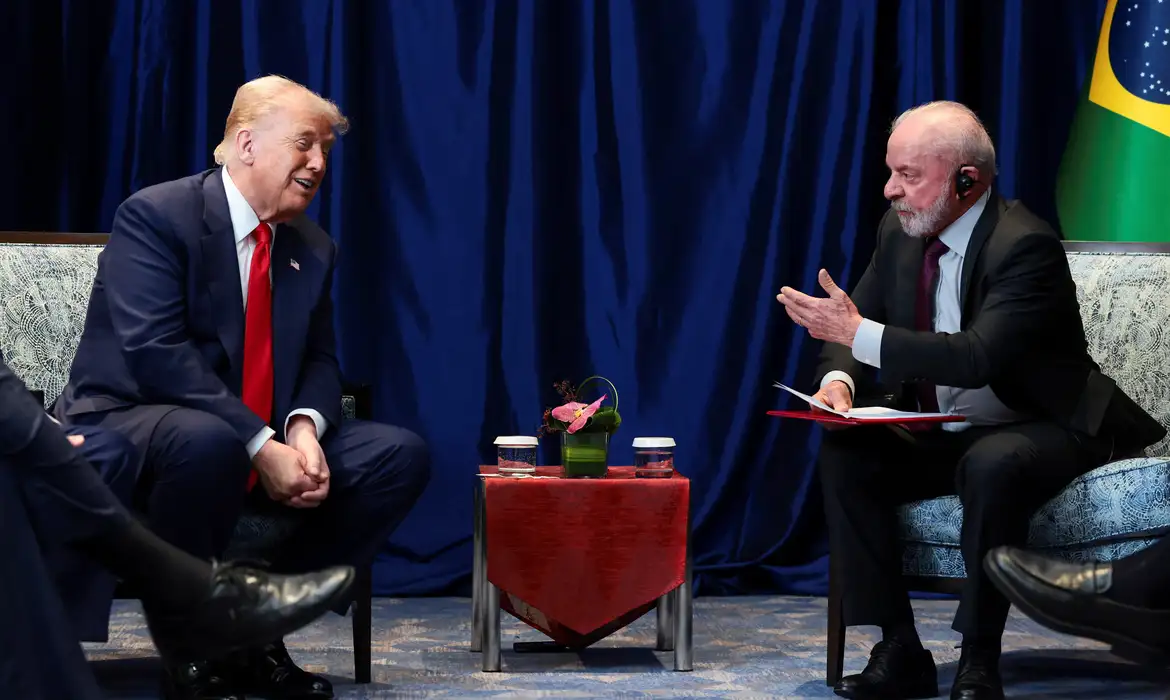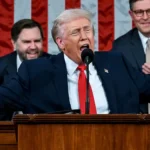
President Luiz Inácio Lula da Silva (PT) and the President of the United States, Donald Trump, met this Sunday (26), in Kuala Lumpur, Malaysia, to discuss the normalization of trade relations between the two countries. The meeting, which lasted around 50 minutes, marked the first formal conversation between the two since the imposition of additional tariffs by the US on Brazilian products and the diplomatic intensification that has occurred in recent months.
The meeting was held at the Kuala Lumpur Convention Center (KLCC) and was attended by ministers and diplomats from both governments. Before the conversation began, Trump stated that he believed in the possibility of progress:
“We must be able to make good deals for both countries”he declared. Lula reinforced the tone of optimism by stating that he hopes “good news” in upcoming joint announcements.
Rapprochement after escalating tensions
The relationship between Brasília and Washington had deteriorated since July, when the US government imposed 50% tariffs on Brazilian meat and coffee exports. The decision occurred at the same time that Trump was trying to pressure Brazilian authorities to suspend the trial of former president Jair Bolsonaro by the Federal Supreme Court.
In addition to tariffs, the United States also applied individual sanctions and visa restrictions to Brazilian officials, which led to a disruption in high-level political communication between governments.
The resumption of dialogue began discreetly in September, during the UN General Assembly in New York, when Lula and Trump had a brief private conversation. The meeting in Malaysia, however, represented the first formal effort to rebuild the bilateral agenda.
Economic agenda and areas of negotiation
The meeting was attended by the Minister of Foreign Affairs, Mauro Vieira; the Minister of Industry, Commerce and Services, Márcio Elias Rosa; and members of Planalto’s international advisory office. On the North American side, Treasury Secretary Scott Bessent and US Trade Representative Jamieson Greer were present.
According to diplomatic sources, the main topics discussed were:
Tariffs imposed on Brazilian coffee, meat and steel.
North American investigations into commercial practices of Brazilian companies.
Regulation of technology platforms and social networks in Brazil.
Cooperation in the energy and biofuels sector, especially ethanol and SAF (sustainable aviation fuel).
Partnerships for the exploration of strategic mineralssuch as niobium and rare earths.
Brazil has the second largest rare earth reserve in the worldbehind China, which arouses US interest amid the technological dispute with Beijing.
Panorama regional e Venezuela
Although it was not a central topic, the crisis in Venezuela was mentioned. In recent weeks, the United States has intensified military operations in the Caribbean against suspected drug trafficking vessels, which has raised the alert level in Caracas.
Lula defended a solution diplomatic and regionalstating that “any armed conflict in South America would be devastating for the region”. Trump, in turn, said he was willing to talk about the topic, but avoided public discussions.
Asked about Jair Bolsonaro, Trump simply responded: “That’s none of your business.”
Signs of agreement and next steps
According to members of the two delegations, technical teams should start, in the coming weeks, a permanent working group to review tariffs and build a gradual proposal for commercial cooperation.
Despite the resumption of dialogue, there is still no official forecast for the suspension of sanctions or the immediate reduction of import duties.
Diplomatic sources say the results will depend on:
And position of the US Congressespecially on commercial topics.
The agricultural negotiations within the WTO.
The evolution of the debate on alternative currencies in BRICS tradea topic on which Brazil and the USA continue to diverge.
Political significance
The meeting marks a strategic rapprochement between the two largest economies on the American continent and indicates that both governments are seeking economic stability after months of tension.
For Lula, the resumption of dialogue reinforces his foreign policy based on multilateralism and the diversification of partnerships. For Trump, it represents an effort to contain China’s growing commercial influence in Brazil.
Despite ideological differences, the meeting showed that the relationship between Brazil and the USA tends to remain guided by economic pragmatism.
Source: https://www.ocafezinho.com/2025/10/26/trump-se-rende-a-lula-e-diz-que-nao-ha-motivos-para-conflito-com-o-brasil/

